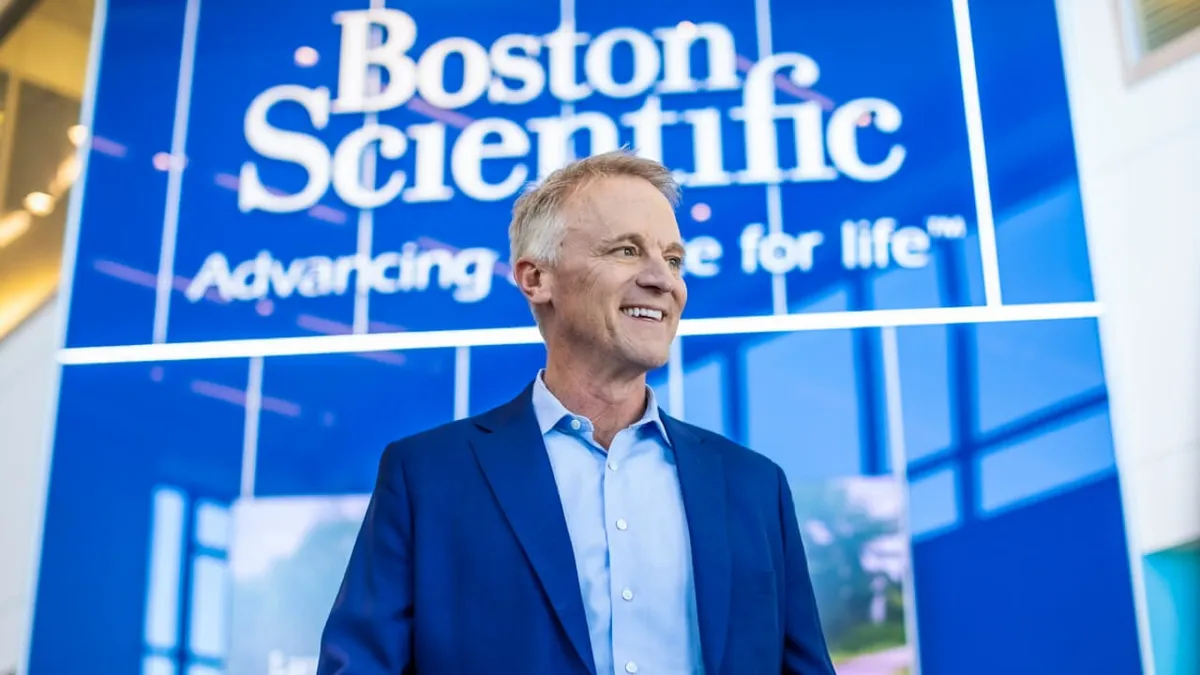Approvals expected next year
New device approvals next year are expected to drive Boston Scientific’s future growth. The Marlborough, Massachusetts-based company reported 11% revenue growth in the third quarter, leading CEO Mike Mahoney to tell investors on Thursday that “2023 is shaping up to be a great year, a good jumping-off point heading into 2024.”
The company shared positive clinical trial results yesterday for its Agent drug-coated balloon, which was used to re-open blocked arteries for patients who have already been treated with stents. Chief Medical Officer Kenneth Stein said he “literally could not be happier with the ultimate results of that randomized trial,” which demonstrated the drug-coated balloon was superior to an uncoated balloon in preventing the need for future procedures to restore blood flow.
Boston Scientific made a recent regulatory submission to the Food and Drug Administration and expects approval of the device in the second half of 2024, Mahoney said, which would make it the first drug-coated balloon indicated for the coronary arteries in the U.S.
The company is also looking for approval next year of its Farapulse pulsed-field ablation system, which uses electrical pulses to scar heart tissue to prevent heart arrhythmias. Data shared this summer showed the device is as safe and effective as thermal ablation in treating atrial fibrillation.
Boston Scientific told investors in September that it expects the global market for atrial fibrillation to grow from $5 billion today to $8 billion by 2026, and the company expects pulsed-field ablation’s share to increase from less than 5% today to a range of from 40% to 60% by 2026.
Spinal cord stimulation launch
Boston Scientific expects to launch its new treatment for painful diabetic peripheral neuropathy on its spinal cord stimulation device in the first quarter of 2024, Mahoney said. It received FDA approval for the expanded indication for its WaveWriter Alpha device earlier this month.
Mahoney said the new indication should be a “big driver” in helping Boston Scientific grow its core spinal cord stimulation business, which has been trailing behind competitors such as Medtronic, Abbott and Nevro, which all received approval earlier for painful diabetic peripheral neuropathy treatments.
The company also announced in September plans to buy Relievant Medsystems for $850 million, which would add a new low back pain treatment to its neuromodulation portfolio. It expects to close the acquisition next year.
Q3 trends
Boston Scientific posted double-digit revenue growth in each of its segments, except for neuromodulation. Standouts in the quarter included cardiology, urology and endoscopy, Stifel analyst Rick Wise wrote in a research note.
The company reported 8.5% growth in the U.S. and double-digit growth in each of its international segments.
The company’s adjusted gross margin for the quarter was 70.2%, falling slightly below its expectations, CFO Dan Brennan told investors. The difference was primarily driven by foreign exchange rates. The company had been targeting gross margins of 71% for the full year 2023.
Forecast
The company expects sales growth of about 11% and earnings per share of from $1 to $1.04 for the full year, an increase from its previous forecast for earnings per share of from $0.87 to $0.93.
In the fourth quarter, the company expects net sales growth of from 9% to 11%, and earnings per share of from $0.26 to $0.30.











